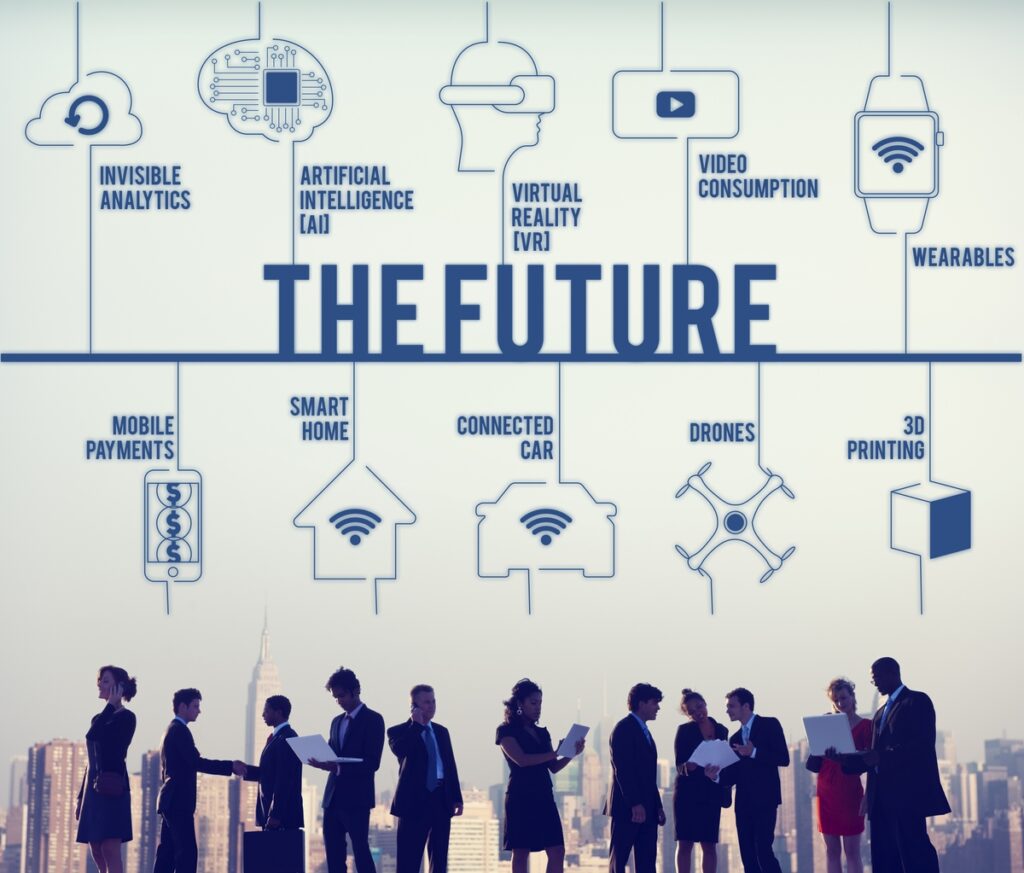“As more and more artificial intelligence is entering into the world, more and more emotional intelligence must enter into leadership.” – Amit Ray, AI Scientist
Recruitment has seen a lot of changes in recent years. What was once an employer-oriented phenomenon, is now more employee-centric. This paradigm shifts aside, we are also seeing a lot of advancements which are altering how recruitment and as a whole is carried out. One of the major changes is the arrival and future of AI-driven recruitment and big data. At some point or another, you might have heard the word ‘automation’ being tossed around the recruitment playground. For the most part, it is playing a big enough role to earn the spotlight, or at least it is beginning to.
Automation takes many forms and can stem from many tools and technologies. These days we are seeing more and more tools emerge to make the life of HR teams easier. These tools identify and assess the best candidates before recruiters even get a chance to talk to them. Parallelly, you will notice how platforms like Facebook, Google, LinkedIn, and Indeed give employers access to valuable big data. This enables all the automation that we enjoy.
These trends point to one concrete thing. HR teams that are embracing these AI-driven recruitment tactics will see the most success in the long term. Having said that, let’s look at why AI-driven recruitment has become so big. Let’s also look at what exactly it is, certain concerns that arise around the topic. We will also touch upon a few ways in which this automation and big data can help your recruitment cause.

Table of Contents
ToggleWhy AI-Driven Recruitment Became a ‘Big Thing’?
They say that necessity is the mother of all inventions. We like to think that the same applies to the emergence of AI-driven recruitment and big data. It was a ripple in the pond as it were. Except this ripple was brought on by heightened levels of competition, high demand for skilled individuals and HR teams that were spread thin. When you think of automation, it is immediately the factors like ‘time saved’ and ‘money saved’ that come to mind. Those are very true, however, there is much more to it.
Automation gained such reverie amongst recruiters for one simple purpose that goes deeper than that – pre-established talent pools! Think about it, with platforms like Facebook, Google, LinkedIn and the millions of other apps and data platforms where you submit your personal information, it is easy for them to track and know you before you even click on the next search item. One minute you find yourself needing to write up a cover letter for a specific job and you look it up on Google. When you go online the next time, you find perfectly targeted ads that match your job title or interests- spooky isn’t it?
But, for a recruiter, this is a gold mine of highly specific digital profiles that allows them to pinpoint your interests and likes, and even predict your next move. And, this is even before the recruiter talks to the candidate. This information lets recruiters better match jobs with suitable candidates and create a sort of preliminary talent pool. The pre-established talent pools help cut the application process in half and shorten the overall distance that candidates and employers have to take.
"Machine intelligence is the last invention that humanity will ever need to make."
- Nick Bostrom, Swedish Philosopher
What is Recruitment Automation?
To know what exactly recruitment automation is, we need to understand how it works. Let’s explore along the lines of the previous example. When we go online, everything we do, search, and click on is tracked by algorithms and databases. This technology makes for a more intuitive experience for the end-user, allowing subsequent searches and online recommendations to be more within our areas of interest. Essentially, technology is learning who we are, what we like and what we want to see. From those pesky SMS texts you get, to the coupons you get on apps, they are all sourcing the database, or big data.
In the same way, recruitment automation technology taps into these data points on job boards, your social media pages and Google search patterns to identify what you are looking for. The tech then categorizes you for job listings depending on what it learned about you. This saves the recruiter a ton of time of having to shortlist your resume, screen your qualifications and so on.
Data centralization is one of the bigger issues that surround bid data and AI in the recruitment world.

Concerns about AI and Big Data
As with anything in the world, there is always a darker cloud looming over the horizon. For big data, that is the centralization of data. However, that is more of an umbrella term that encompasses a few key issues under the surface. The first one is the loss of access to the desired content.
Over the years, companies like Facebook, Amazon, Google, and even Yahoo have come to dominate the internet. They govern what people see, gather vast amounts of user data and many smaller companies pay them to make their content discoverable to the masses. It is one big monopoly. A decade ago, people could easily go to a piece of news and read it online. A Pew Research Centre report found that these days, 7 in 10 adults use Facebook, which means 70% of Americans in this instance get their news feed through a monopolizing platform.
The other major concern with the centralization of data is privacy concerns and cyber-security risks. The information of millions of potential candidates and customers are stored on a single server or point of access. However, on the other end of things, with centralization, recruitment itself gets much easier. There are several arguments for and against it and we won’t definitively hash it out in this one blog, but it is a good framework to have in mind when considering AI-driven recruitment.
What Does the Future of AI-Driven Recruitment Look Like?
Keep in mind that we are still in the early stages of AI-driven recruitment and to that end, it does need a certain level of human intervention to help make the right choices. Though the human element is needed now, it may not be the case in the future. As time goes by, more and more data will be accumulated from a growing population of job seekers, which means the accuracy of AI-driven hiring will be much higher, and less reliant on the human element.
In our view, a good balance of both human intuition and machine automation is needed to make the most progress. Having said that, Credibled is an automated reference checking web application that allows for an easier, more efficient reference checking process between employers and candidates. Not only that, but it also helps you tap into the passive candidate pool, which has a lot of potential when you are on the hunt for top talent.




